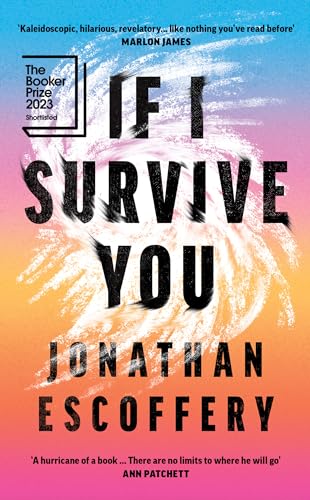Whether or not you have read any of his work, most people will have heard of Stephen King and could probably name one or two of his books. And anyone who dabbles in writing, whether or not they have actually read any of his books, will have some admiration for the American author, a man committed to his craft, who shares his insights humbly and widely, and who is both prolific and highly regarded. Surely a giant of American letters.
In a writing career spanning half a century, King has published more than sixty-five novels (that’s more than one a year!), several non-fiction books, hundreds of short stories, screenplays, and even graphic novels. His first novel, Carrie (published in 1974), sold a million copies in paperback and became a bestseller when it was adapted for the screen in 1976, launching the career of Sissy Spacek in the title role. His next two novels, published in 1975 and 1977 are also seminal works – Salem’s Lot and The Shining. Both won awards and both were made into highly successful screen adaptations, the latter starring Jack Nicholson, of course, in what is arguably one of his finest performances.
All of this and I have never picked up a Stephen King book. My first boyfriend when I was a teenager was a huge Stephen King fan and I never much cared for his literary tastes, being much more into the classics at that stage in my life! I’ve also largely avoided the horror genre, disliking the films (I can barely watch most of them) and therefore assuming the books would not be for me. There is however, horror, and there is horror. So, I was open-minded when I suggested to my book club that we tackle a Stephen King. We picked Misery because we could watch the film as well, and it secured an Oscar in 1990 for Kathy Bates in the role of Annie Wilkes – its funny how I have a memory of her acceptance speech. We listened on audio, because that is our thing, and we all agreed it was read brilliantly by Lindsay Crouse.
The plot of the novel is simple: Paul Sheldon is a successful author who, after completing the draft of his latest, and what he believes to be his best, novel, Fast Cars, decides to drive from the remote hotel where he normally likes to write, to Los Angeles. It is winter, the weather is poor and he has a serious accident, crashing his car in Colorado near the small town of Sidewinder. His upturned vehicle is discovered by local woman Annie Wilkes, who lives alone on her small isolated farm. Annie retrieves the badly injured Paul from the wreckage of his car and takes him to her house. She is a qualified nurse and keeps a wide range of medications at home. Paul wakes up to find himself in her spare bedroom, his broken legs splinted and his wounds treated. He is initially grateful to her for saving his life, a fact which she reminds him of frequently, and is only slightly curious as to why she has not taken him to hospital or brought in a doctor.
During his unconscious phase, it is clear that Annie searched his belongings and discovered his identity. She knows him well because she is his “number one fan” – an avid reader of the historical novels featuring a Victorian orphan Misery Chastain, which have been responsible for bringing Paul fame and fortune, but which he has grown to loathe because of their lack of literary merit. The latest novel in the series is about to be published, which means Annie is in an excited frenzy, and it will be the last because Misery dies, although Annie does not yet know this.
As the days pass and Paul’s condition improves he becomes increasingly concerned as to why Annie will not let him notify his friends and family and his agent of his whereabouts, or why she will not let him see a doctor. He begins to doubt her excuses about the severity of the weather. Things take a dramatic turn for the worse when Annie gets hold of the newly-published book Misery’s Child. She is enraged to find that her heroine dies, accusing Paul of murdering her. To make matters worse, she reads the manuscript of Fast Cars and considers it worthless filth. Her reaction finally convinces Paul that he is her prisoner and Annie’s behaviour becomes increasingly unpredictable and violent. Annie acquires an ancient typewriter from the thrift shop in town and sets Paul the task of writing another manuscript in which Misery is restored to life, though she insists that the story must be “fair” – credible and not by magic. Most distressingly, she also makes Paul burn the manuscript (the only one) of Fast Cars, page by page on a barbecue.
The rest of the novel concerns the psychological battle of wills going on between Annie and Paul. He is vulnerable, weak and disabled and she exercises power over him, not least actually locking him up. She also gets him hooked on opiate painkillers, effectively enslaving him. Annie is prone to bouts of deep depression, perhaps she is bipolar, and occasionally disappears for days at a time, sometimes leaving him without food or pain relief. Paul plots escape and sabotage but his efforts are mostly unsuccessful and simply make Annie worse. There are moments of extreme violence in the book, but not as much as you would expect for a horror novel – the horror here is mainly psychological. But the threat of horror is ever-present. King gets us into the mind of the prisoner, not knowing from one day to the next whether his captor will kill or torture him, or whether today she might be nice and bring him ice cream. The reader is kept in a constant state of alert. In some ways it is exhausting, but is definitely utterly compelling.
I was surprised at just how much I enjoyed this book. We enjoyed the film less, although it is a very good effort and well-acted, mainly I think because it is just too short, leaves out too much, and brings in additional characters who do not feature in the novel. I fear I might have started with the best of King by reading Misery, but I will definitely read more.
Highly recommended.










